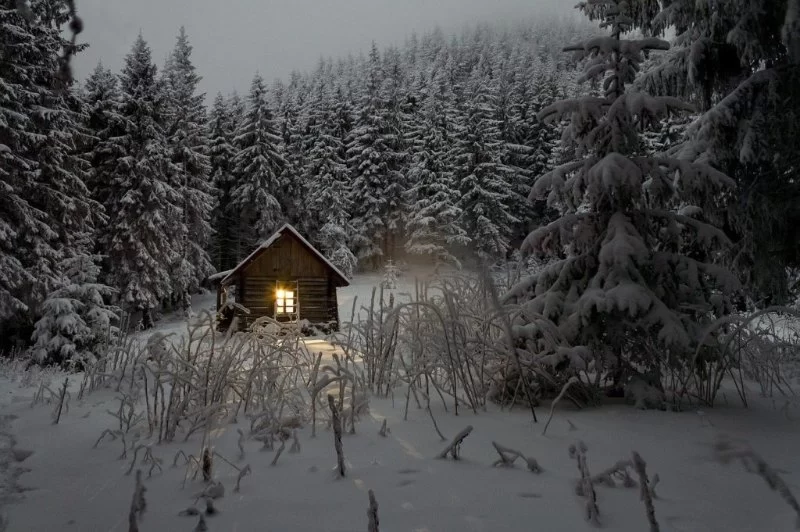Learn how to prepare for a blizzard while camping with expert tips on gear, shelter, campsite safety, and survival strategies. Explore cold-weather camping resources at Pine Cliff Resort.

- Understanding-the-Risks-of-Winter-Camping
- Gear-Checklist-for-Blizzard-Preparedness
- How-to-Choose-a-Safe-Campsite
- Strategies-to-Survive-a-Blizzard-While-Camping
- True-Stories-of-Winter-Camping-and-Survival
- Winter-Camping-Resources-from-Pine-Cliff-Resort
1. Understanding the Risks of Winter Camping
Camping during a blizzard may sound extreme, but for winter adventurers, it's a real scenario that demands preparation. Cold exposure, whiteout conditions, snow accumulation, and the risk of hypothermia are serious concerns. If you're planning a winter trip, understanding how to prepare for a blizzard while camping isn’t just wise—it’s essential to survival.
1.1 The Difference Between Cold Camping and Blizzard Camping
Cold-weather camping is one thing—snowshoeing into a snowy clearing and settling under the stars can be magical. But a full-on blizzard introduces rapidly changing weather, high winds, and zero visibility. Planning for these differences can make or break your experience.
1.2 Know When to Stay Put or Evacuate
Sometimes, the smartest survival move is not to move at all. If a blizzard strikes while you're already at your campsite, staying put may be safer than attempting to hike out. Recognizing the signs early and making decisions with safety in mind is key.
2. Gear Checklist for Blizzard Preparedness
2.1 Shelter That Can Withstand the Storm
A four-season tent is non-negotiable when winter camping. Look for models designed to handle snow loads and strong winds. Make sure it has reinforced poles, low profiles, and good ventilation to prevent condensation build-up inside.
2.2 The Right Sleeping System
Combine an insulated sleeping pad with a cold-rated sleeping bag (preferably -20°F or lower). A bivy sack can add another layer of protection and help trap body heat during the night.
2.3 Warmth and Emergency Gear
Bring layered thermal clothing, hand warmers, a headlamp with extra batteries, snow shovel, emergency blanket, and a compact camp stove for melting snow and cooking. Don’t forget waterproof matches and a backup power bank for emergency communications.
2.4 Dealing with Moisture
Wet gear in cold temperatures is dangerous. Store clothing in dry sacks, wear moisture-wicking base layers, and never go to sleep in damp clothes. Remember, staying dry is half the battle in surviving a blizzard outdoors.
3. How to Choose a Safe Campsite
3.1 Avoid Avalanche Zones and Tree Hazards
Set up camp well away from slopes, even modest ones. Avalanches can be triggered by minimal snowfall or warming temperatures. Also avoid pitching tents under heavy-laden trees or dead branches that could snap under snow weight.
3.2 Use Natural Wind Barriers
Snow drifts and rock formations can offer some shelter from direct wind. Position your tent with the narrow end into the wind and use snow walls or natural mounds to reduce exposure.
3.3 Stay Near Resources Without Compromising Safety
If possible, choose a location near tree cover for insulation and firewood—but not so dense as to trap falling snow or make navigation difficult. Make sure you can locate landmarks if visibility drops.
4. Strategies to Survive a Blizzard While Camping
4.1 Building a Snow Shelter
If your tent fails or conditions demand it, a snow trench or a quinzee (snow dome) can provide life-saving insulation. It’s counterintuitive, but snow traps heat better than you think—just be sure to ventilate to prevent CO2 buildup.
4.2 Melting Snow for Water
Hydration is often forgotten in the cold. Always melt and boil snow before drinking to kill contaminants. Don’t eat snow directly—it lowers your core temperature and increases dehydration.
4.3 Staying Mentally Sharp
Cold can cloud judgment. Make checklists and routines to stay focused—whether it’s checking for frostbite, eating regularly, or keeping your gear dry. Keeping your morale up with hot drinks or even simple music can help during long, stormy nights.
5. True Stories of Winter Camping and Survival
5.1 The Unexpected Storm in Upper Michigan
Last winter, a group of backpackers at Lake Superior National Forest were caught in a surprise blizzard. Their decision to dig into a snowbank and insulate with pine branches saved them from sub-zero winds. “We stayed put, rationed food, and waited it out. The snow literally became our shelter,” said Dan, the group’s leader.
5.2 A Lesson in Preparation from an Experienced Solo Camper
Lauren, an experienced solo camper from Colorado, was hit with a fast-moving front while in the Rockies. Thanks to her prior blizzard preparation, she had the supplies and skills to hunker down for two days. “Knowing how to build a snow windbreak around my tent made the biggest difference,” she shared in an online winter hiking forum.
6. Winter Camping Resources from Pine Cliff Resort
Whether you’re planning your first snow-covered adventure or leveling up your cold-weather survival skills, Pine Cliff Resort offers a variety of expert-vetted gear, winter camping guides, and seasonal programs tailored for outdoor enthusiasts. Our staff includes seasoned winter trekkers who can help you find the best cold-weather solutions, from thermal tents to blizzard-ready hydration kits.
Don’t leave winter camping to chance. Let Pine Cliff Resort help you prepare smartly and confidently so that even if a blizzard rolls in, you're ready to face it head-on—with warmth, wisdom, and well-packed gear.
ASM campground llc
50406 Mellott Rdg Rd, Beallsville, OH 43716, USA
Visit Location PageSheepshead
Montana 59701, USA
Visit Location Page